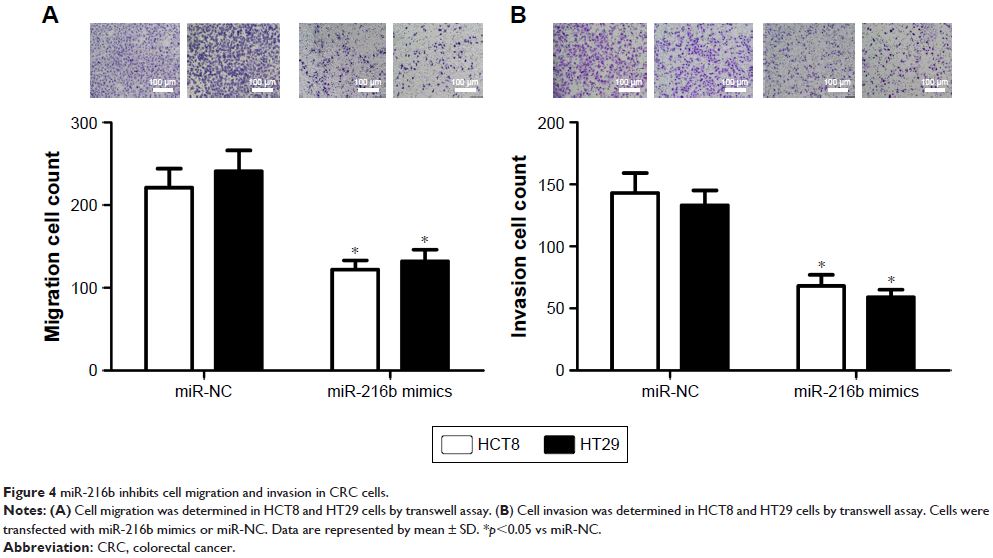108985
论文已发表
注册即可获取德孚的最新动态
IF 收录期刊
- 3.4 Breast Cancer (Dove Med Press)
- 3.2 Clin Epidemiol
- 2.6 Cancer Manag Res
- 2.9 Infect Drug Resist
- 3.7 Clin Interv Aging
- 5.1 Drug Des Dev Ther
- 3.1 Int J Chronic Obstr
- 6.6 Int J Nanomed
- 2.6 Int J Women's Health
- 2.9 Neuropsych Dis Treat
- 2.8 OncoTargets Ther
- 2.0 Patient Prefer Adher
- 2.2 Ther Clin Risk Manag
- 2.5 J Pain Res
- 3.0 Diabet Metab Synd Ob
- 3.2 Psychol Res Behav Ma
- 3.4 Nat Sci Sleep
- 1.8 Pharmgenomics Pers Med
- 2.0 Risk Manag Healthc Policy
- 4.1 J Inflamm Res
- 2.0 Int J Gen Med
- 3.4 J Hepatocell Carcinoma
- 3.0 J Asthma Allergy
- 2.2 Clin Cosmet Investig Dermatol
- 2.4 J Multidiscip Healthc

MiR-216b 通过靶向 SRPK1 而抑制结肠直肠癌的增殖、迁移和侵袭
Authors Yao YF, Li QR, Wang H
Received 7 January 2018
Accepted for publication 6 February 2018
Published 23 March 2018 Volume 2018:11 Pages 1671—1681
DOI https://doi.org/10.2147/OTT.S161835
Checked for plagiarism Yes
Review by Single-blind
Peer reviewers approved by Dr Cristina Weinberg
Peer reviewer comments 3
Editor who approved publication: Dr Ingrid Espinoza
Background: MiR-216b
has been reported to be involved in the development of some cancers, however,
the role of miR-216b in colorectal cancer (CRC) remains unclear.
Purpose: This study aimed to investigate the mechanism underlying
miR-216b-induced CRC development.
Methods: We detected the expression of miR-216b in 80 cases of CRC tissues and
cell lines, and further analyzed the association between miR-216b and clinical
pathological indicators as well as prognosis. In vitro, the miR-216b
overexpression cell model was established for further functional assay.
Results: We demonstrated that miR-216b in CRC tissues and cell lines was
markedly decreased compared with corresponding adjacent normal tissues and
colonic mucosal epithelial cell line, and was obviously associated with the TNM
stage, lymph node metastases, and poor overall survival as well as
recurrence-free survival. Furthermore, we found that miR-216b inhibited cell
proliferation, cell cycle, migration, and invasion by targeting 3'-UTR of SRPK1 . Besides, SRPK1
over-expression reversed miR-216b-inhibited cell proliferation, migration and
invasion, while SRPK1 inhibition aggravated these effects.
Conclusions: We identified that miR-216b suppresses colorectal cancer
proliferation, migration and invasion by targeting SRPK1, which shed light on
how miR-216b functions in CRC pathogenesis.
Keywords: MiR-216b, SRPK1, colorectal cancer, proliferation, migration,
invasion
